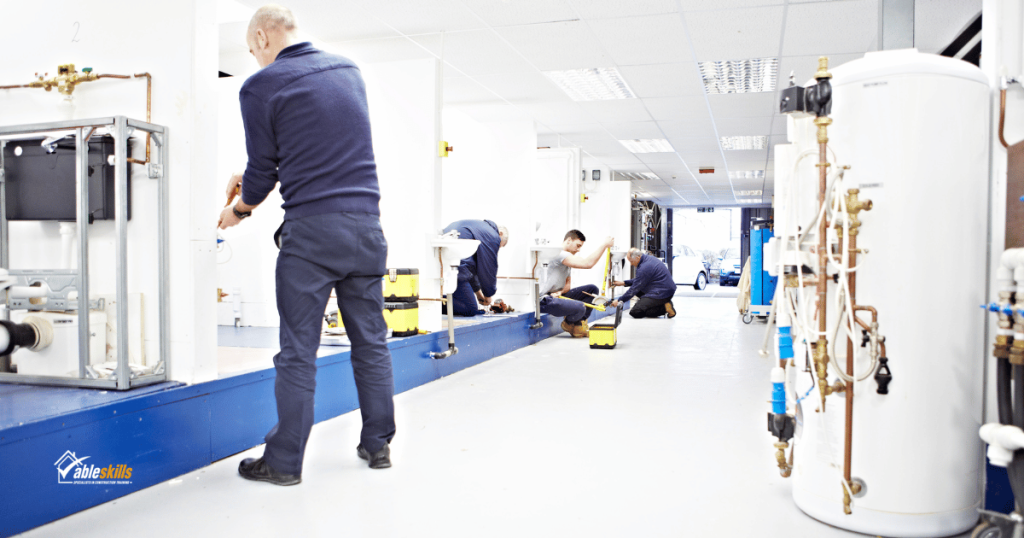
Whatever construction trade you’re working in, building on your existing skillset with advanced and specialist training can be a great way of boosting both your career prospects, employability and earning potential.
Being able to offer a wider range of services is a great way to make yourself stand out, and there are a number of routes you could explore when it comes to expanding your skill set with further training for plumbers.
Beyond adding skills, there are also occasions where a plumber may want or need to achieve a formal qualification for either personal or professional purposes.
Experienced plumbers who need an NVQ
Many plumbers will have worked in the industry for a number of years, and throughout this period the rules, regulations and qualifications will have changed a number of times.
This means that despite being more than capable of meeting the requirements of holding an NVQ, due to the qualification not existing when they originally completed their training they don’t currently hold one.
Holding an NVQ, while not a legal requirement, can often be looked on favourably by potential employers and customers, as it is an industry-recognised accreditation that confirms a plumber has trained to a high level.
If this is you, to streamline the process of gaining your NVQ, Able Skills offers a fast-track course that covers all the necessary work-based assessments needed to achieve an NVQ.
Plumbers looking to add specialist skills
There are a number of valuable specialist skills that can be added via further training for plumbers. An Energy Efficiency course is particularly useful at a time when most homeowners are looking for ways to save on their bills, while a Bathroom Fitting course opens up the possibility of installing entire bathrooms for customers.
Along with that, completing a Water Regulations course means a plumber can join WIAPS, allowing them to carry out work without having to be approved by their local water company.
Plumbers expanding into gas work
Often, a natural progression for plumbers is to expand into gas work given the frequent crossover and compatibility between both trades.
Again, this is a great way to make your services more appealing to both employers and customers, as you can offer a fuller service.
The current average salary of a gas engineer in the UK is £38,706, higher than the average plumbing salary of £31,745, meaning you could potentially boost your earning potential by adding gas qualifications.
Recent findings from the Heating and Hot Water Industry Council (HHIC) also suggest there is continued high demand for gas skills, with the organisation predicting that an additional 50,000 qualified workers will be needed by 2028 to meet the government’s target of installing 600,000 new heat pumps per year by 2028.
Whatever stage you’re at in your plumbing career, our team can help you find the course that’s right for your individual goals. You’re welcome to visit us in the training centre any time we’re open for a chat, or If you can’t make it in, give us a call on 01322 280 202.